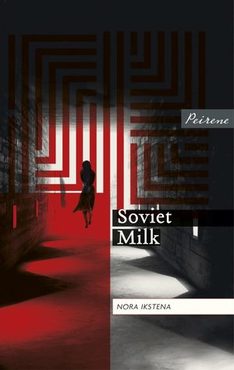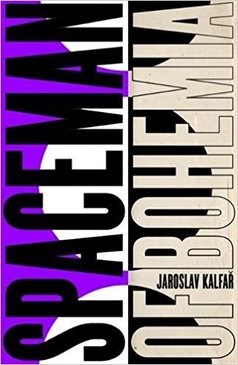Soviet Milk by Nora Ikstena translated by Margita Gailitis
The doctor enjoys the intellectual challenge of her profession, the science. So she’s delighted when given the opportunity to further her studies in Leningrad. It’s no particular sacrifice to leave behind her daughter; the girl’s grandparents have been her primary carers since birth. But when she attacks a drunken neighbour who has beaten his pregnant wife, her patient, the doctor’s sojourn in the city comes to an abrupt end. Banished to the countryside, she must adjust to a more restricted life treating, as best she can, the stream of desperate women – many with fertility issues, both too much and too little – who attend her clinic.
This time, she takes her daughter with her. Perhaps they’ll have the opportunity to deepen their relationship but, with long hours at the clinic, and her own psychological flakiness, the roles are reversed (p184):
It seemed to me that since I was born I’d been trying to get my letter to connect to life. As a helpless infant, as a child of limited understanding, as a fearful teenager, as a young woman. And she always seemed to be striving to turn out her life’s light.
Narrated alternately from the perspectives of mother and daughter, both unnamed (which, along with an initial timelag between their narratives, makes it hard to follow at the start), their painful relationship partly reflects the national trauma of occupation and neglect. The novella is rich in metaphor: the daughter’s lifelong aversion to milk; the pet hamster who eats its young; the doctor sending the girl to a fancy dress party as “split personality”; the doctor becoming obsessed, in 1984, with a fragment of a (presumably banned) novel about a man called Winston.
The difficulty of parenting in a regime in which knowing the truth can be dangerous, reminded me of the short story collection from North Korea The Accusations by Bandi. The challenge of practising medicine with limited resources made life in the NHS, as depicted in the novel Histories, seem luxurious. Although ending on a hopeful note with the dismantling of the Berlin Wall, Soviet Milk a bleak book, albeit a satisfyingly thought-provoking one. A university student by the end, the future certainly looks brighter for the daughter, although I doubt her formative years feeling responsible for a depressed mother will have left her unscathed. Thanks to Peirene Press for the chance to dip into Latvian literature.
Spaceman of Bohemia by Jaroslav Kalfar
Amid maintaining himself and his spacecraft, navigating a relationship with an alien, and briefing mission control back in Prague, Jakub has plenty of time to reflect on his country’s history and his own life on Earth. The collapse of communism was not a cause for celebration for his own family, as his father had been well rewarded for his active role in the repressive regime. Confusing enough for a ten-year-old who loves his parents, Jakub was further challenged when a man turned up at the house where he now lived with his grandparents (his parents having conveniently died in a chairlift accident) seeking retribution for the torture he received at the hands of Jakub’s father.
Meanwhile, awaiting his weekly video contact with his girlfriend Lenka, Jakub is informed that she’s disappeared. Later, transcripts from sessions with the mission psychotherapist (a fairly credible fictional therapist, apart from in his willingness to see Lenka separately when he still has an existing contract with Jakub) show that she did not view the relationship as positively as Jakub thought.
This is a lovely debut novel that almost defies description. While some novels suffer from the weight of too many stories, Spaceman of Bohemia manages to be much bigger than the sum of its many parts: sci-fi adventure; love story; sociopolitical history of the Czech Republic and homage to Prague; psychodrama of how the actions of one generation shape the next; a meditation on identity, adaption to loss, and what makes us human. It also generated some interesting reflections for me on attachment to trauma. The author’s enviable facility with language becomes yet more impressive when we discover he immigrated to the USA at fifteen with very little English and is still not quite thirty. Thanks to Sceptre for my review copy.























 RSS Feed
RSS Feed





















